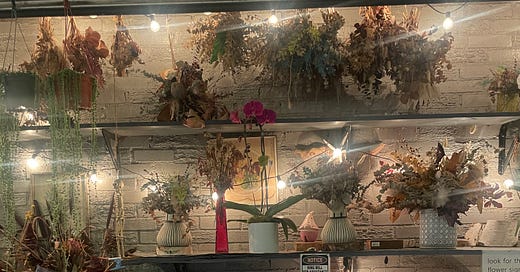by a therapist who understands both professionally and personally
My father took his own life when I was six years old. I guess I'm cutting straight to the point with this one—no prep, no preamble—for Father’s Day.
At the time, I didn’t understand what was happening. I didn’t know he was leaving me in the care of someone who was already emotionally immature and would soon become even more deeply traumatized.
Looking back, I can imagine that her emotional intensity and his emotional fragility were a combustible mix. But that’s neither here nor there. What matters now is that I’ve spent a lifetime trying to heal from the loss of my father.
When I reached my late teens, I finally pieced together the family secret—the truth they had kept hidden for most of my life. I remember the rage that followed. At the time, his decision felt like such a selfish act.
And then came the guilt.
Then the attempts at forgiveness.
But how do you forgive someone you never really got to know?
Now, at 40, I find myself sitting with the shape of the void he left behind. Not just the father-shaped hole in childhood, but the ripple effect of his absence into my adulthood.
I think he would have seen me struggling to navigate the minefield that is my relationship with my mother, and I truly believe he would have validated just how hard that is.
He would have understood her difficulty, her limitations. Maybe even named them. That would’ve helped.
There’s also the spiritual ache. He was Jewish. My mother wasn’t. And so I’ve often found myself craving a connection to that part of my heritage—but not quite knowing where to turn.
So I float. Longing for roots I can’t quite reach.
The role of a father is so often minimized in our culture. There's this idea that “a mother can do it all.” But if you, like me, grew up with a narcissistic mother, you know that’s not true.
They can't fill both roles. Sometimes they can't even fill the one.
And then there’s the other parent—the one married to the narcissist. That parent is often overlooked. But let’s be honest: they were usually struggling too. Maybe they were codependent. Maybe they were adult children themselves, stuck in old patterns. Maybe they turned to substances, or stayed silent, or simply didn’t know how to protect you from the emotional chaos.
And that leaves us, as adult children, feeling doubly disappointed. Because if neither parent could fully show up… who do you turn to?
If this resonates with you, know that you're not alone.
One of the things I’ve learned—both as a therapist and as a person who is still healing—is this:
Slow down. Feel the wound.
Sometimes I keep myself so busy that when I finally have a weekend off, the ache surfaces. I’ve learned not to run from it. That tenderness? That ache? It’s information. It’s your system saying: something still matters here.
So if Father’s Day brings up grief, longing, confusion, or even resentment—it’s okay. You don’t have to fix it. But you can tend to it.
Here are a few gentle tools that help me, and that I often share with clients:
• Name the loss. Say it out loud, even if just to yourself. “I never had a father who protected me.” “I never had a parent who saw me clearly.” Naming brings clarity—and often, relief.
• Limit contact or input that triggers the ache. You don’t have to look at everyone’s Father’s Day posts on Instagram. You don’t have to buy a card for someone who wasn’t there for you.
• Create your own ritual. Light a candle. Write a letter. Visit a place that reminds you of safety. Do something that marks the day, but on your terms.
• Connect with chosen family. Sometimes support comes from a mentor, friend, teacher, or therapist who steps in with the presence your parent couldn’t provide.
• Move your body. Gently.
Grief needs motion—a walk, a stretch, even a deep breath can help ground the emotion.
To the high-achieving, intellectually-driven adults out there who are still healing—you are not broken. You are not too much. You are not alone.
You are just someone who had to grow up in a complex, often painful emotional landscape. And you are doing the incredibly brave work of becoming more whole.
This Father’s Day, I’m sending you love. And space. And permission to feel exactly what you feel.




